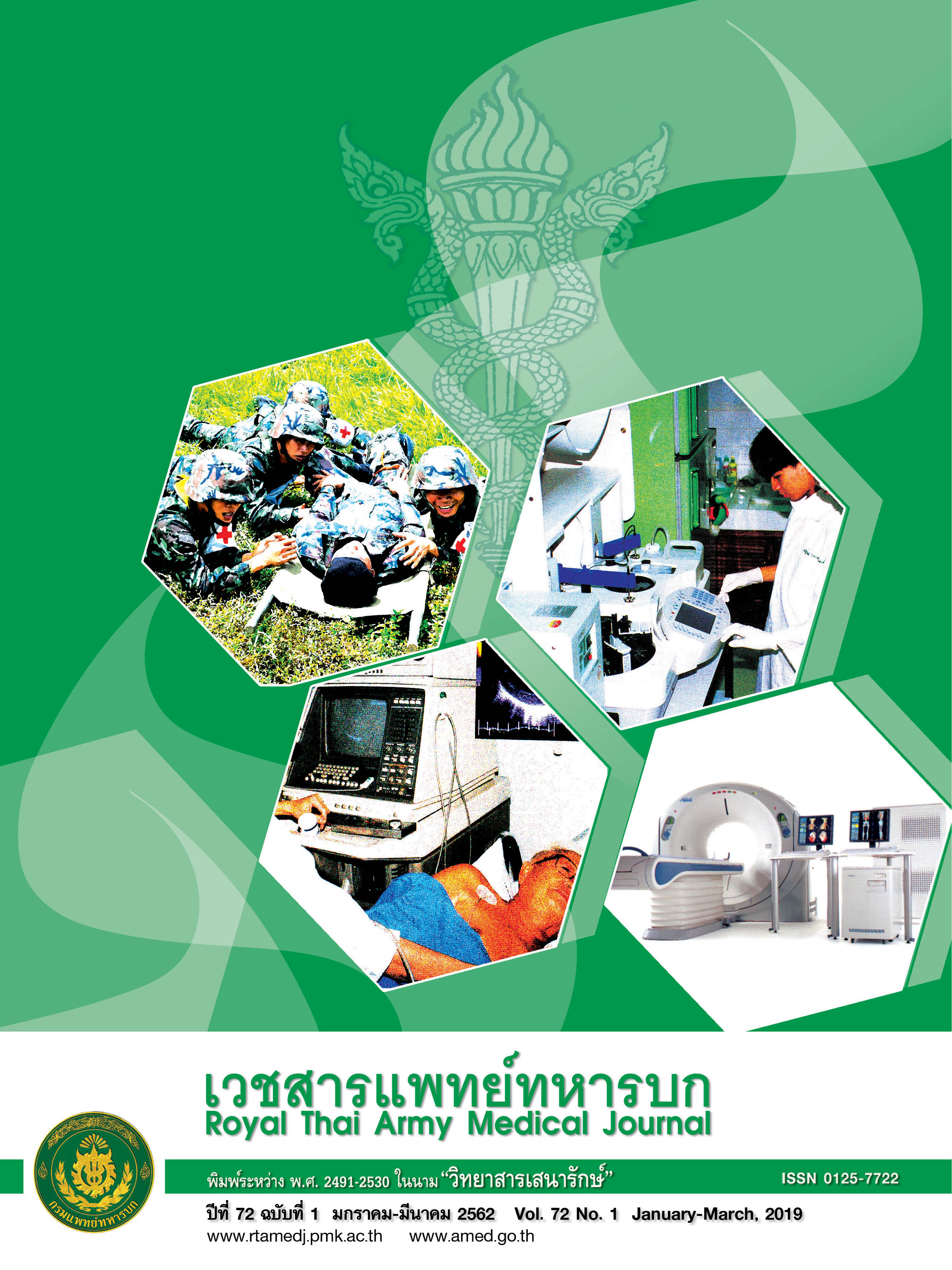ผลของโปรแกรมการรับรู้ความสามารถของตนเองต่อพฤติกรรมหลีกเลี่ยงการใช้สารเสพติดของเยาวชน..
Main Article Content
บทคัดย่อ
Abstract:
Introduction: It is a place of globalization that has a big effect on every unit of the country. People have more stress from living the modern life. Many people, including teenagers, chose alternative way or relieving stress by using addictive substances and alcohol because adolescence is age that want to try, to know, to Challenge and Believe in their friends. The CAUSAL MODEL of risk factors and immune factors found that the causal factor as an immune factor avoids the drug by Self-esteem, knowledge of drug, Self-control, life skill doing by their self. The program was based on Bandura. Objective: This reseach was to compare knowledge before and after received a perceived self-efficacy program. Methods: The Quasi-experimental research two group pretest posttest design were to this samples were 60 risk adolescents by sampling. The questionnaires were tested for content validity by 3 experts. The reliability of two instruments were reported by using Cronbach’s Alpha coefficient as of 0.78, 0.87, 0.88 and 0.88 respectively. The data was also analyzed using descriptive statistics; percentages, means and standard deviation. paired-t-test. Result revealed that : The experimental group had a statistically
significant score on Self-Efficacy higher than the control group at the .01 significance level. The experimental group had statistically significant scores on Behavior Avoiding Narcotics and Knowledge and Attitude, higher than the control group at the .01 significance level. Conclusion: Perceived Self-Efficacy Program can increase effectiveness of knowledge about narcotics and towards behavioral of avoiding narcotics.
Downloads
Article Details
บทความในวารสารนี้อยู่ภายใต้ลิขสิทธิ์ของ กรมแพทย์ทหารบก และเผยแพร่ภายใต้สัญญาอนุญาต Creative Commons Attribution-NonCommercial-NoDerivatives 4.0 International (CC BY-NC-ND 4.0)
ท่านสามารถอ่านและใช้งานเพื่อวัตถุประสงค์ทางการศึกษา และทางวิชาการ เช่น การสอน การวิจัย หรือการอ้างอิง โดยต้องให้เครดิตอย่างเหมาะสมแก่ผู้เขียนและวารสาร
ห้ามใช้หรือแก้ไขบทความโดยไม่ได้รับอนุญาต
ข้อความที่ปรากฏในบทความเป็นความคิดเห็นของผู้เขียนเท่านั้น
ผู้เขียนเป็นผู้รับผิดชอบต่อเนื้อหาและความถูกต้องของบทความของตนอย่างเต็มที่
การนำบทความไปเผยแพร่ซ้ำในรูปแบบสาธารณะอื่นใด ต้องได้รับอนุญาตจากวารสาร


